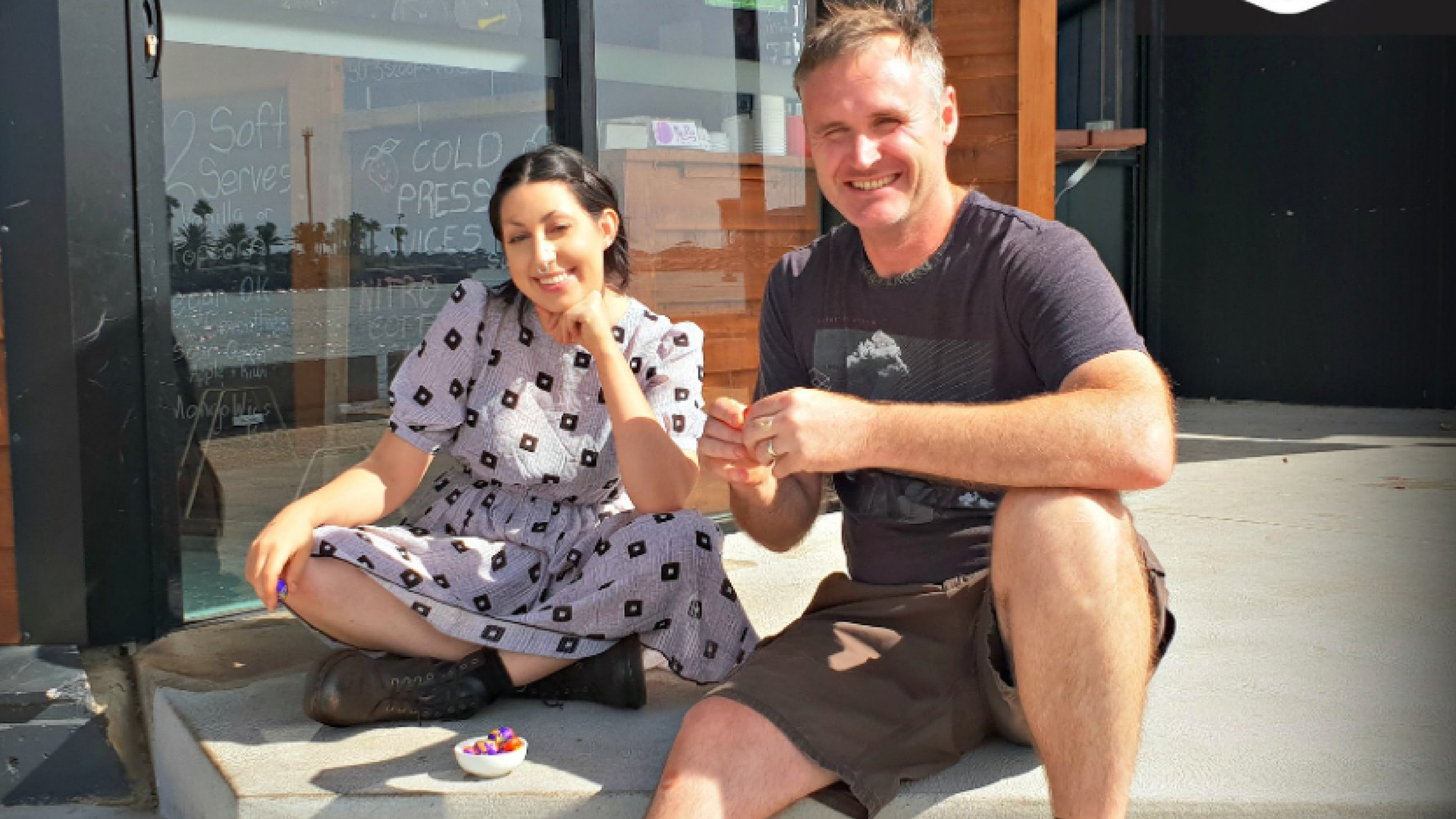
Pictured: Ash and Blake from Lynch’s Hub
Meet Blake Forrester, who keeps many from the PON team fed and caffeinated from his hole-in-the-wall style cafe Lynch’s Hub. Blake has built Lynch’s Hub from the ground up, transforming the derelict former Lynch’s Prawn building into a bustling café and ice cream bar.
Read on to find out more about Lynch’s Hub and why their famous (and delicious!) hoagies have a special connection to Newcastle’s maritime history.
Tell us about Lynch’s Hub
I was actually seafarer by trade. I have always loved food, cooking and coffee but had never considered operating a hospitality business. While working in the offshore oil and gas sector in 2016 I had a very nasty injury to my back that ended my seafaring career. I was convalescing at home in Newcastle and took to strolling along the Foreshore, wondering “what now?”.
I spotted a ‘call for tender’ poster in the window of the derelict Lynch’s Prawns building. Looking up and down the Foreshore I realised that this funny little yurt-like structure was the only building that I could recognise from the harbourside of my youth. I knew the history of the place and the importance of the Lynch’s story. From that point on I was determined to see this unique little landmark on the Newcastle Foreshore returned to its important role within the fabric of our City.
Best dish on the menu?
I love our hoagies. Not just because they are delicious but because they have a great story that is aligns nicely with the culture of our own harbour city. Hoagies are a Philadelphian sandwich on a long roll, traditionally the bigger the better. They became a favourite of the shipbuilding labourers at the Hog Island ship-yards and radiated outwards from there.
What has the experience of adapting to COVID-19 been like at Lynch’s Hub?
It’s been difficult. We’ve had to adapt very quickly and I’m really proud of the way the team has handled themselves. Our week-day mainstay of office workers on Wharf Road disappeared overnight along with most of our catering work. Then because of our tiny floor space, we basically couldn’t have anyone inside the shop and had to pivot to a hole-in-the-wall style operation, re-writing the menu to be something that actually made sense in that format.
Nobody knows where we are going from here so my strategy has been to try to set everything up to be hyper-lean and be ready for a whatever that might turn out to be.
How do you take your coffee?
Flat-white and far too often.
What’s your favourite memory of the port?
When I was a kid my best friend and I would ride our push-bikes in from Wallsend with our fishing rods taped to the top tubes of our bikes at 4:00am in the morning. We’d fish behind the old Commercial Fisherman’s Co-op when it was on Wharf Road and spend any money we had on ice-creams or hot chips. Not wanting to ride our bikes back to Wallsend in the heat of the day we’d be looking for the bus fare. We would catch yellow-tail at the Co-op then stand behind the bait shop and sneakily try to sell them out of a bucket to fishermen coming in to buy bait at Lynch’s. Pat Lynch chased us away on more than one occasion.
What’s next? Any exciting endeavours you can tell us about?
I’m working on an old school late 1970s / early 1980s style milk bar. It will be called “Hoppo’s Milk Bar” after my late father-in-law and located on Maitland Road in Mayfield. We’ll be making our own gelato onsite and want it to have all the things that our milk bars used to have, such as lolly counters and pinball machines. Plus espresso coffee of course!
Port of Newcastle
Port of Newcastle is a major Australian trade gateway handling 4,600 ship movements and 171 million tonnes of cargo each year. With its annual trade worth about $25 billion to the New South Wales economy, the Port enables businesses across the state to successfully compete in international markets. With a deepwater shipping channel operating at 50% of its capacity, significant port land available and enviable access to national rail and road infrastructure, Port of Newcastle is positioned to further underpin the prosperity of the Hunter, NSW and Australia. As custodians of the region’s critical asset, Port of Newcastle is diversifying its trade as it strives to create a safe, sustainable and environmentally and socially responsible Port that realises its potential.
